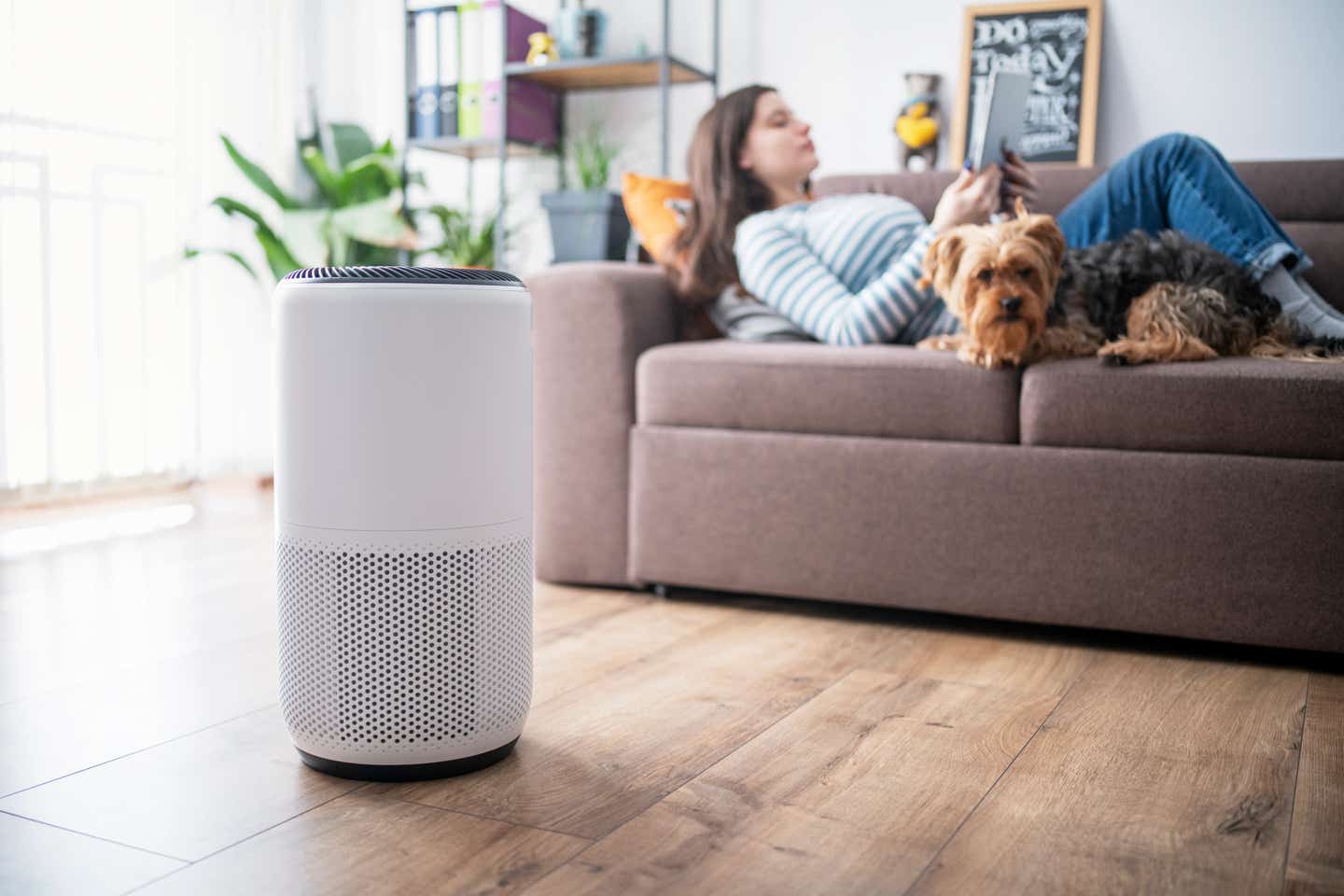Do air filteration systems stop people from getting sick?
Researchers determine whether air cleaning technologies can genuinely reduce the risk of airborne respiratory or gastrointestinal infections

[Nov. 22, 2023: JD Shavit, The Brighter Side of News]
Residue from rinse agents is left behind on dishes after they are cleaned in professional-grade dishwashers. (CREDIT: Creative Commons)
In the midst of the COVID-19 pandemic, governments, organizations, and individuals scrambled to find ways to minimize the risk of viral infections in indoor spaces. One popular approach was the adoption of air filtration systems, germicidal lights, and ionizers, all promising to make social interactions safer.
However, a recent study conducted by researchers at the University of East Anglia (UEA) challenges the effectiveness of these technologies in real-world settings.
The research team at UEA embarked on a comprehensive investigation to determine whether air cleaning technologies can genuinely reduce the risk of airborne respiratory or gastrointestinal infections. They scrutinized a wide array of evidence from 32 studies conducted in real-world environments such as schools and care homes. These studies included both pre-pandemic and pandemic-era research, with the latter yet to be published.
The kinds of technologies researchers considered included filtration, germicidal lights, ionizers, and any other method of safely removing viruses or deactivating them in breathable air. (CREDIT: Getty Images)
Lead researcher Dr. Julii Brainard explained the scope of their investigation, stating, "The kinds of technologies that we considered included filtration, germicidal lights, ionizers, and any other method of safely removing viruses or deactivating them in breathable air." Their findings were striking: there was no strong evidence supporting the idea that air treatment technologies can protect individuals in real-world scenarios.
The Misconception About Air Treatment Technologies
One common belief among the public and health authorities was that air filtration systems, germicidal lights, and ionizers would create a safer indoor environment, reducing the risk of viral transmission. Professor Paul Hunter, from UEA’s Norwich Medical School, emphasized the need to assess the benefits against the costs, especially considering that these technologies can be expensive.
Related Stories:
"When the Covid pandemic hit, many large companies and governments - including the NHS, the British military, and New York City and regional German governments - investigated installing this type of technology in a bid to reduce airborne virus particles in buildings and small spaces," Prof. Hunter explained. However, the research team's findings have challenged the assumption that these technologies are a panacea for viral infection prevention.
The UEA study reviewed a substantial body of evidence to evaluate the effectiveness of air treatment technologies. While some previous research suggested that these technologies might reduce the likelihood of infection, the evidence was found to be weak and potentially biased.
Dr. Brainard noted, "There is a lot of existing evidence that environmental and surface contamination can be reduced by several air treatment strategies, especially germicidal lights and high-efficiency particulate air filtration (HEPA). But the combined evidence was that these technologies don't stop or reduce illness." In essence, while these technologies may help reduce environmental contamination, they may not effectively prevent illness transmission.
A recent study conducted by researchers at the University of East Anglia (UEA) challenges the effectiveness of these technologies in real-world settings. (CREDIT: ACS Publications)
The study's findings, though disappointing, underscore the importance of having a complete and unbiased understanding of the capabilities and limitations of air treatment technologies. Dr. Brainard expressed hope that the studies conducted during the COVID-19 pandemic would be published soon, allowing for a more informed assessment of the role air treatment played during the pandemic.
The research was a collaborative effort, with contributions from various institutions, including University College London, the University of Essex, the Norfolk and Norwich University Hospital Trust, and the University of Surrey. It was funded by the National Institute for Health and Care Research Health Protection Unit in Emergency Preparedness and Response, in partnership with Kings College London and UEA, and the UK Health Security Agency.
In essence, while these technologies may help reduce environmental contamination, they may not effectively prevent illness transmission. (CREDIT: MDPI)
As we continue to navigate the challenges posed by infectious diseases, it is crucial for public health decision-makers and the general public to base their choices on scientific evidence. The UEA research reminds us of the need for thorough and unbiased assessments of emerging technologies, especially those with significant financial and resource implications.
While air treatment technologies may play a role in improving indoor air quality, the study suggests that they should not be solely relied upon as a comprehensive solution for protecting against respiratory and gastrointestinal infections. As the scientific community continues to study the impacts of these technologies, we await further research to provide a more comprehensive understanding of their potential benefits and limitations in safeguarding public health.
For more science and technology stories check out our New Discoveries section at The Brighter Side of News.
Note: Materials provided above by University of Zurich. Content may be edited for style and length.
Like these kind of feel good stories? Get the Brighter Side of News' newsletter.
Joshua Shavit
Science & Technology Writer | AI and Robotics Reporter
Joshua Shavit is a Los Angeles-based science and technology writer with a passion for exploring the breakthroughs shaping the future. As a contributor to The Brighter Side of News, he focuses on positive and transformative advancements in AI, technology, physics, engineering, robotics and space science. Joshua is currently working towards a Bachelor of Science in Business Administration at the University of California, Berkeley. He combines his academic background with a talent for storytelling, making complex scientific discoveries engaging and accessible. His work highlights the innovators behind the ideas, bringing readers closer to the people driving progress.



